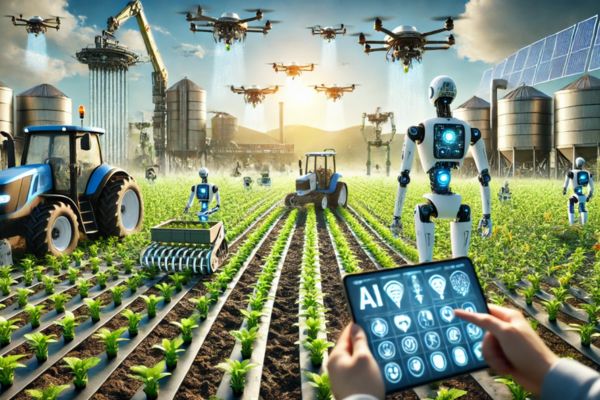AI agritech Kenya adoption is accelerating in 2025, with platforms like Apollo Agriculture and UjuziKilimo using satellite data and machine learning to boost yields—but high costs and fragmented landholdings limit nationwide impact.
Kenya now hosts over 42 active agritech startups leveraging artificial intelligence, making it Africa’s leading hub for digital agriculture innovation. By October 2025, these tools are delivering measurable results on the ground.
Proven Impact Through Rigorous Testing
- Apollo Agriculture: Uses AI to analyze satellite imagery, soil data, and weather to offer credit and inputs. A 2025 MIT Randomized Control Trial found users achieved 31% higher yields and 28% lower post-harvest losses.
- UjuziKilimo: Its “SmartFarm” IoT sensors and AI advisory system serve 85,000 farmers. Data from the Kenya Agricultural Observatory (October 2025) shows a 22% reduction in fertilizer overuse.
- Farm.ink: AI-powered voice and SMS chatbot delivering advice in Swahili and local languages—now reaches 300,000 farmers (GSMA AgriTech Report, September 2025).
Strong Public-Private Backing
- Kenya’s National AI Strategy (2024) allocates $15 million in seed grants for agritech.
- Safaricom’s Spark Fund invested $8 million in 2025 in early-stage AI agritech firms.
- The World Bank’s $50 million Digital Agriculture Project is integrating AI tools into county extension services.
Barriers to Nationwide Scale
Challenges persist:
- Land fragmentation: Average farm size is 0.5 hectares, reducing satellite monitoring accuracy.
- Digital literacy: Only 38% of rural women can independently use smartphone-based tools (FinAccess Survey, August 2025).
- Affordability: AI-enabled inputs remain out of reach without subsidies or bundled credit.
Path Forward: Open Data and Localization
The Kenya Agricultural and Livestock Research Organization (KALRO) is developing an open-data AI platform to standardize climate and soil models—potentially lowering costs for startups and farmers alike.
AI agritech Kenya is delivering real value—but to transform national food security, it must become cheaper, simpler, and more inclusive.
Follow us on Instagram.
https://www.instagram.com/businessnewsng?igsh=ZXpweTdjOGF1ZXdu





















